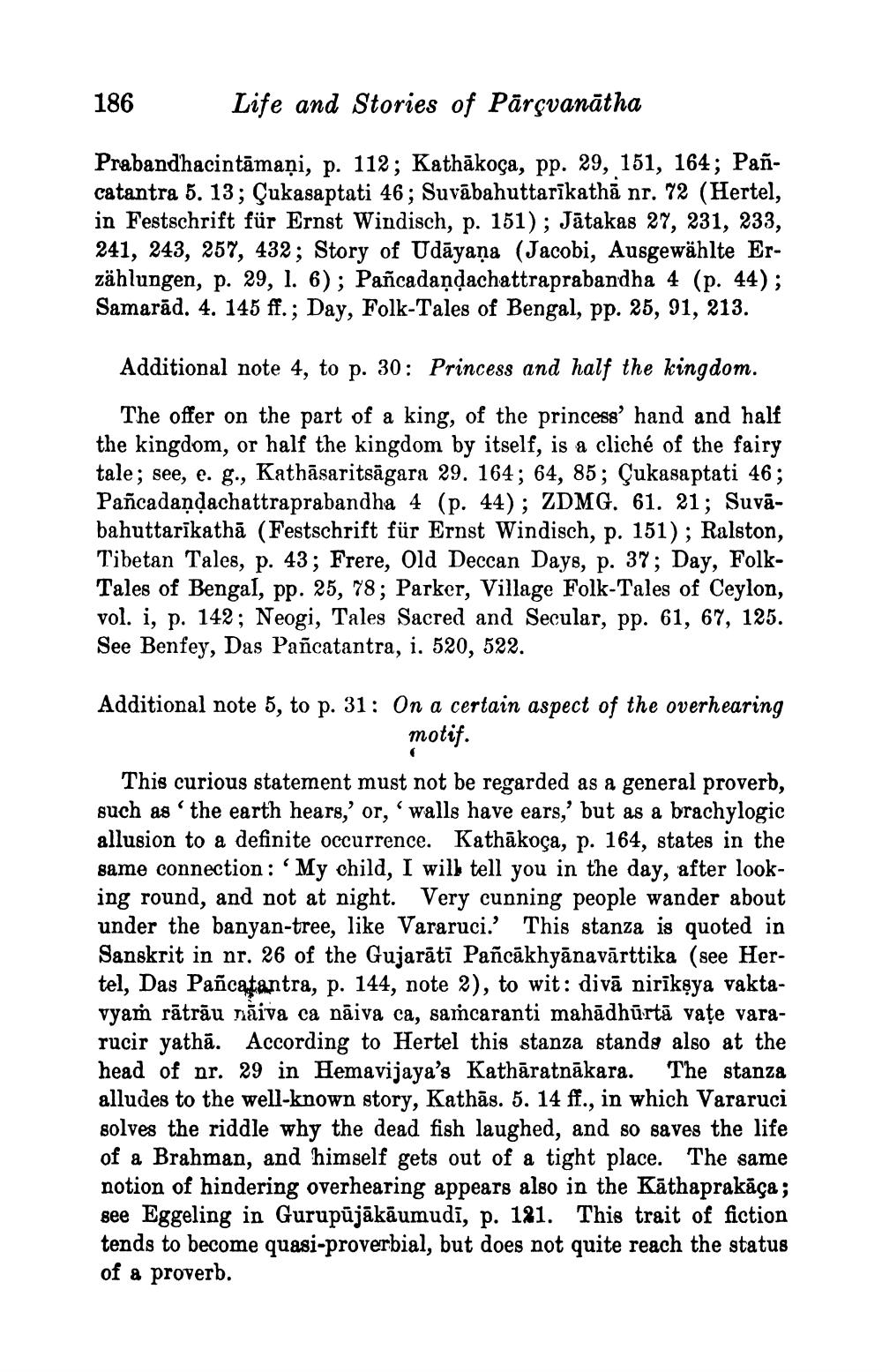________________
Life and Stories of Pārçvanatha
Prabandhacintamaņi, p. 112; Kathakoça, pp. 29, 151, 164; Pañcatantra 5. 13; Çukasaptati 46; Suvabahuttarikatha nr. 72 (Hertel, in Festschrift für Ernst Windisch, p. 151); Jātakas 27, 231, 233, 241, 243, 257, 432; Story of Udayaṇa (Jacobi, Ausgewählte Erzählungen, p. 29, 1. 6); Pañcadanḍachattraprabandha 4 (p. 44); Samarād. 4. 145 ff.; Day, Folk-Tales of Bengal, pp. 25, 91, 213.
186
Additional note 4, to p. 30: Princess and half the kingdom.
The offer on the part of a king, of the princess' hand and half the kingdom, or half the kingdom by itself, is a cliché of the fairy tale; see, e. g., Kathāsaritsagara 29. 164; 64, 85; Çukasaptati 46; Pañcadaṇḍachattraprabandha 4 (p. 44); ZDMG. 61. 21; Suvabahuttarikatha (Festschrift für Ernst Windisch, p. 151); Ralston, Tibetan Tales, p. 43; Frere, Old Deccan Days, p. 37; Day, FolkTales of Bengal, pp. 25, 78; Parker, Village Folk-Tales of Ceylon, vol. i, p. 142; Neogi, Tales Sacred and Secular, pp. 61, 67, 125. See Benfey, Das Pañcatantra, i. 520, 522.
Additional note 5, to p. 31: On a certain aspect of the overhearing motif.
(
6
This curious statement must not be regarded as a general proverb, such as the earth hears,' or, 'walls have ears,' but as a brachylogic allusion to a definite occurrence. Kathakoça, p. 164, states in the same connection: 'My child, I will tell you in the day, after looking round, and not at night. Very cunning people wander about under the banyan-tree, like Vararuci.' This stanza is quoted in Sanskrit in nr. 26 of the Gujarātī Pañcākhyānavārttika (see Hertel, Das Pañcatantra, p. 144, note 2), to wit: diva nirīkṣya vaktavyam rātrau naiva ca naiva ca, samcaranti mahādhūrtā vaţe vararucir yatha. According to Hertel this stanza stands also at the head of nr. 29 in Hemavijaya's Kathāratnākara. The stanza alludes to the well-known story, Kathās. 5. 14 ff., in which Vararuci solves the riddle why the dead fish laughed, and so saves the life of a Brahman, and himself gets out of a tight place. The same notion of hindering overhearing appears also in the Kāthaprakāça; see Eggeling in Gurupūjākāumudi, p. 121. This trait of fiction tends to become quasi-proverbial, but does not quite reach the status of a proverb.




